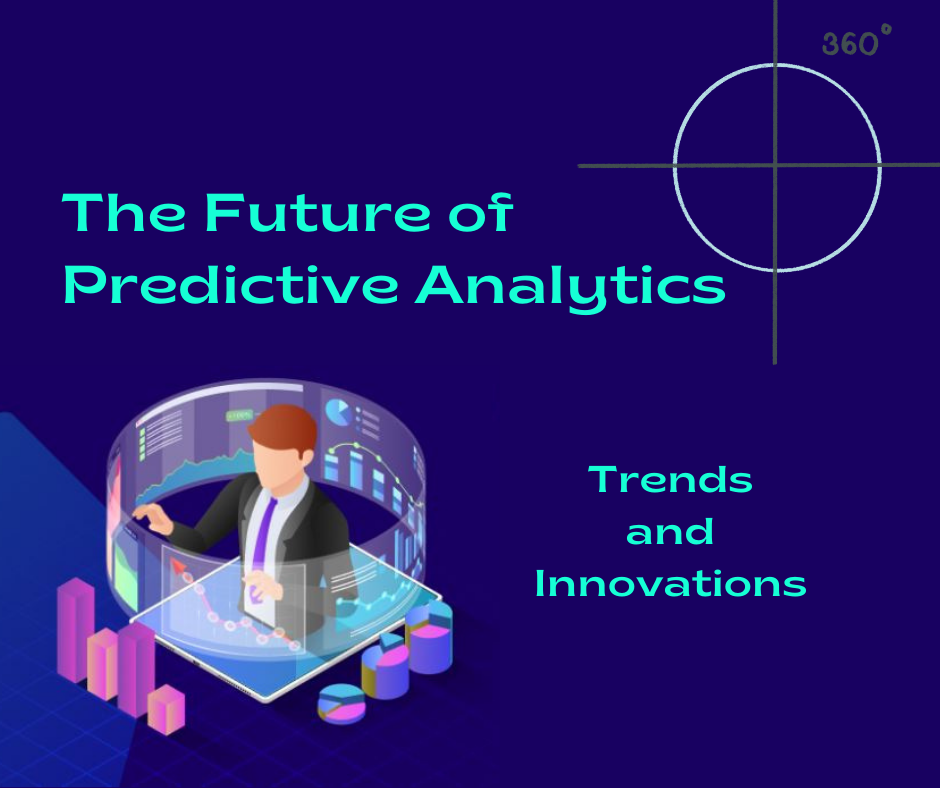Introduction
In today’s fast-paced and data-driven business landscape, the role of business intelligence (BI) continues to evolve rapidly. While traditional BI tools have been instrumental in helping organizations analyze historical data and gain insights into past performance, the future of BI lies in predictive analytics and machine learning innovations. These technologies enable businesses to go beyond retrospective analysis and anticipate future trends, behaviors, and outcomes, empowering them to make proactive, data-driven decisions that drive growth and competitive advantage.
The Rise of Predictive Analytics
Predictive analytics is a subset of data analytics that focuses on predicting future outcomes based on historical data and statistical algorithms. By leveraging advanced modeling techniques, predictive analytics enables businesses to forecast trends, identify patterns, and anticipate potential outcomes with a high degree of accuracy.
One of the key benefits of predictive analytics is its ability to identify hidden patterns and relationships within data that may not be immediately apparent through traditional analysis methods. This allows businesses to uncover valuable insights and make informed decisions based on data-driven predictions rather than intuition or guesswork.
Machine Learning and AI-driven Insights
Machine learning, a subset of artificial intelligence (AI), is revolutionizing the field of business intelligence by enabling computers to learn from data and improve their performance over time without explicit programming. Machine learning algorithms can analyze large datasets, detect patterns, and make predictions or recommendations based on the data.
In the context of BI, machine learning algorithms can be applied to a wide range of tasks, including predictive modeling, natural language processing, anomaly detection, and personalized recommendations. For example, businesses can use machine learning algorithms to predict customer churn, identify fraudulent transactions, optimize pricing strategies, and personalize marketing campaigns based on individual preferences and behaviors.
Innovations in Predictive Analytics and Machine Learning
The future of business intelligence lies in the continued innovation and integration of predictive analytics and machine learning technologies. Some key innovations shaping the future of BI include:
- Automated Machine Learning (AutoML): AutoML platforms enable businesses to automate the process of building, training, and deploying machine learning models without requiring extensive data science expertise. These platforms streamline the model development process, making machine learning more accessible to non-technical users and accelerating time-to-insight.
- Deep Learning: Deep learning, a subset of machine learning inspired by the structure and function of the human brain, is revolutionizing BI by enabling computers to process and analyze unstructured data such as images, text, and audio. Deep learning algorithms can extract valuable insights from complex data sources, enabling businesses to gain a deeper understanding of customer sentiment, market trends, and competitive dynamics.
- Real-time Predictive Analytics: Real-time predictive analytics capabilities allow businesses to analyze streaming data and make predictions in real-time. This enables organizations to detect and respond to emerging trends, anomalies, and opportunities as they occur, enabling faster decision-making and more agile responses to changing market conditions.
- Explainable AI: As AI and machine learning algorithms become more prevalent in BI applications, the need for explainable AI is becoming increasingly important. Explainable AI algorithms provide transparency into the decision-making process of machine learning models, enabling users to understand how predictions are generated and trust the insights derived from AI systems.
The Benefits of Predictive Analytics and Machine Learning in BI
The integration of predictive analytics and machine learning into BI offers several benefits for businesses:
- Improved Forecasting Accuracy: Predictive analytics enables businesses to forecast future trends, demand, and outcomes with greater accuracy, helping them anticipate market shifts and make proactive decisions.
- Enhanced Personalization: Machine learning algorithms enable businesses to personalize products, services, and marketing messages based on individual preferences and behaviors, leading to higher customer satisfaction and loyalty.
- Cost Savings: Predictive analytics and machine learning can identify inefficiencies, risks, and opportunities for cost savings across various business processes, such as supply chain management, inventory optimization, and resource allocation.
- Competitive Advantage: By leveraging predictive analytics and machine learning, businesses can gain insights into market trends, customer behaviors, and competitor strategies, enabling them to stay ahead of the competition and seize new opportunities for growth.
Conclusion
The future of business intelligence is characterized by the widespread adoption and integration of predictive analytics and machine learning technologies. These innovations enable businesses to go beyond traditional retrospective analysis and gain insights into future trends, behaviors, and outcomes. By leveraging predictive analytics and machine learning, organizations can make proactive, data-driven decisions that drive growth, improve operational efficiency, and enhance customer experiences. As these technologies continue to evolve and mature, businesses that embrace predictive analytics and machine learning will be well-positioned to thrive in an increasingly competitive and data-driven business landscape.
FAQs
Q: What are some common challenges businesses may face when implementing predictive analytics and machine learning in BI?
A: Common challenges include data quality issues, lack of data science expertise, scalability concerns, and organizational resistance to change. However, these challenges can be addressed through proper data governance, investment in talent and technology, and a culture of data-driven decision-making within the organization.
Q: How can businesses ensure the ethical use of predictive analytics and machine learning in BI?
A: Businesses should establish clear guidelines and policies for the ethical use of data and AI, including considerations for privacy, fairness, transparency, and accountability. Additionally, ongoing monitoring and auditing of AI systems can help identify and address potential biases or ethical concerns.
